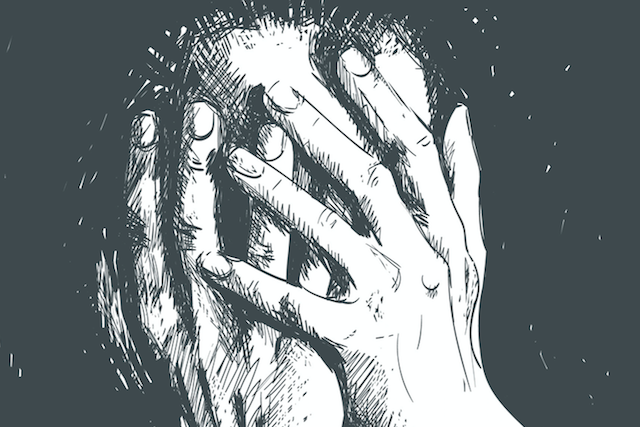
In Falling Upward, Richard Rohr writes: “I have prayed for years for one good humiliation a day, and then I must watch my reaction to it. ... I have no other way of spotting both my well-denied shadow self and my idealized persona.” [1] When I first read those words, I resisted them. Humiliating another person is a cruel and unkind act, so why would I ask to be on the receiving end of that? No one needs humiliation, do they? According to Christian saints, both ancient and contemporary, the answer to that question is an unqualified yes. As Rohr indicates, it is easy to lie to ourselves, especially if we are capable leaders. We want to believe that we are good at what we do, that people should look up to us, that we are mature and wise and special and perhaps even somewhat impressive. We swallow small doses of superiority and pride until we are immune to the distastefulness and deception. Rohr tells us that the most effective antidote to living falsely is accepting humiliation.
Recently, my spiritual director suggested implementing mid-day spiritual practices to help me counter the feeling of being a bit unmoored. Because I like variety, I decided to go with a different spiritual practice every day and quickly listed six which I found helpful. I contemplated taking Sundays off but concluded that it would be better to have a plan for that day in case I needed it. For some reason, I wrote down the word humiliation. I immediately doubted and regretted my choice, but I decided to give it a try anyway.
Sundays are my best and worst days. I am a leader in my faith community, so Sunday is a busy day. Just this past week I set up the room, played on the worship team, acted as MC for the meeting, prayed, engaged with a variety of people, took care of organizational details, cleaned up, and went out for lunch with members of the community. Once a month I add speaking to that list. My primary vocation and skill set is not pastoring (though I have learned to be pastoral) and I am an introvert, so Sundays tax me in all the ways. I generally love being in our gatherings but I feel drained. I want to contribute to the life of the community but I have limited social energy. I see the benefit of the weekly communal rhythms but get fatigued by the work required to keep them going.
If I think back on recent Sundays, humiliation features in pretty much all of them. At some point, I am usually judgmental, impatient, or anti-social. I inevitably play or sing a wrong note, my mind might go blank in the middle of a talk, or I might say something inappropriate or inaccurate during the meeting. I am frequently trying to do too many things at once, so something or someone gets left out or forgotten. When my social energy is depleted, I struggle to be loving or even courteous. I can ignore and avoid people. Sometimes I say unkind things to my husband. Not all the humiliation is internal. Because our community is filled with imperfect human beings, situations can arise which make me cringe, especially when visitors drop in. When I wrote the word, humiliation, I was really acknowledging what was already happening on Sundays.
Humiliation generally brings with it a sense of shame, but when I began to frame it as a spiritual practice, my perspective changed. Basically, I realized that humiliation is an invitation for me to lean into the ways of Jesus.
Humiliation invites me to shift the focus off my (and my community's) inadequacies and onto the generous provision of God. When a situation requires wisdom, insight, love, encouragement, or discernment, and humiliation shows up instead, I am invited to trust that the Holy Spirit has it covered. When I make a mistake (both things I do and things I don't do), I am invited to believe that the gaps will be filled with divine grace. When I demand perfection of myself and fail, I am invited to become present to my humanity and see all the ways it binds me to my fellow humans. When I do not meet the expectations of others, I am invited to acknowledge my limitations and ask for help. When I feel pressure to perform or produce certain results, I am invited to be my most authentic self, knowing that this is the best gift I can give to God and to the world. Humiliation invites me to repent quickly, to resist defensiveness, to let go of reputation, to act justly, and to embrace the lowest places.
Humiliation invites me to let go and fall, fall, fall into the arms of one who knows all about humiliation. One who has given good gifts and watched them be smashed and perverted. One who has made covenant after covenant only to suffer unfaithfulness. One who has been stripped naked in public and mocked. One who has suffered every humiliation known to humankind because that is what love does.
Humiliation is a doorway to the way of Jesus. I pray for the courage to open that door whenever it presents itself to me. Which is probably next Sunday.
--------------
[1] Richard Rohr. Falling Upward. San Francisco: Jossey-Bass, 2011. 128.
Image from tinybuddha.com
Comments